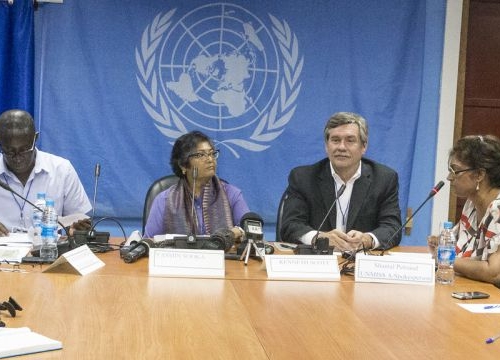A Rights-Based Approach to Conflict Prevention
Event


UNMISS/Isaac Billy

The war in Ukraine has highlighted the weakness of the multilateral system in responding to large-scale risks of violent conflict. However, over recent years, there has been a growing evidence base that human rights-driven approaches to conflict risks can be very effective, from the increasing role of the Human Rights Council on matters of peace and security to more field-driven human rights work in conflict settings.
Drawing on the past year of empirical research, this event at the 2023 Geneva Peace Week – co-organized with United Nations University Centre for Policy Research and the Geneva Centre for Security Policy – will showcase the promising possibilities of a rights-based approach to conflict prevention, including case study findings from South Sudan, the Central African Republic, Mali, and more. It will also draw on joint research into the prospects of more effectively using the human rights architecture for the UN's peacebuilding and peacekeeping work.
Panelists
- Adam Day, Head of the Geneva Office, United Nations University
- Charlie Hunt, Senior Fellow, United Nations University
- Florence Foster, Representative for Peace and Disarmament, QUNO
- Erica Harper, Head of Research and Policy Studies, Geneva Academy











